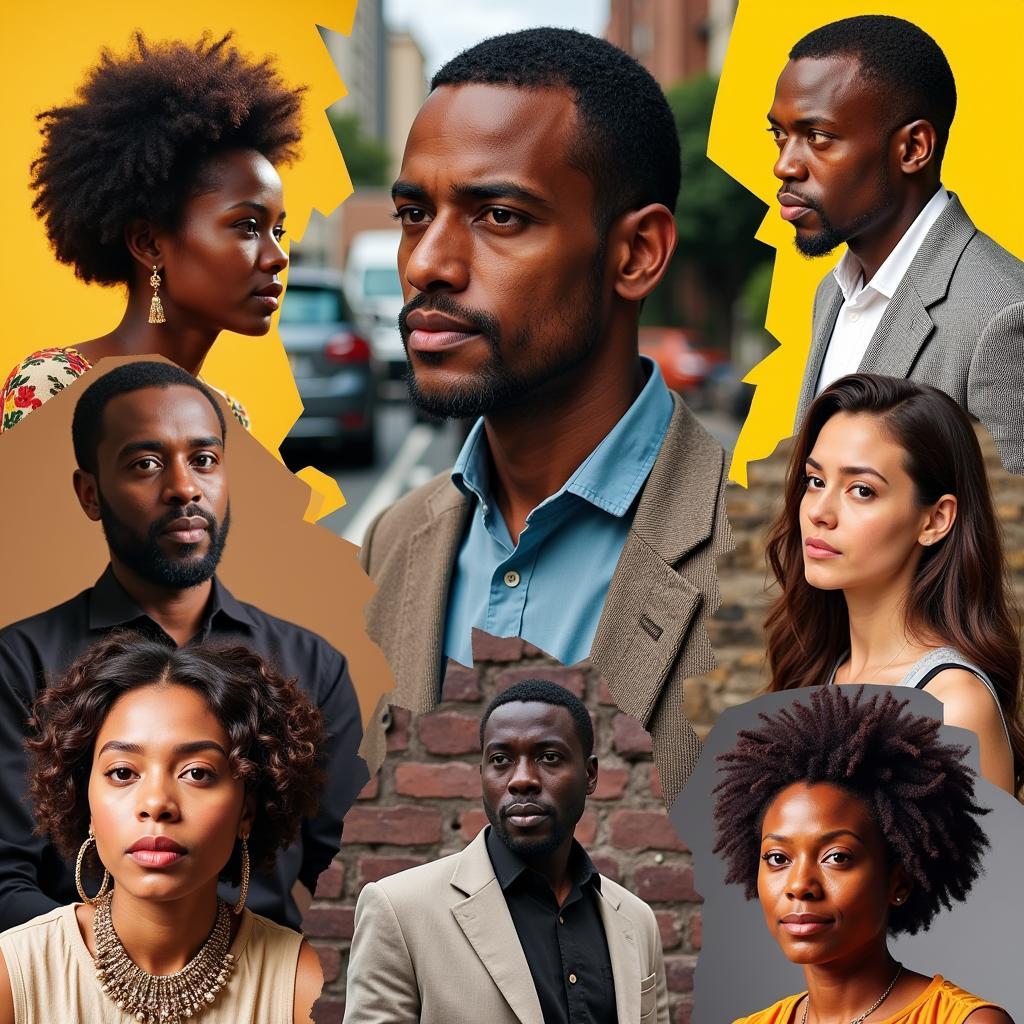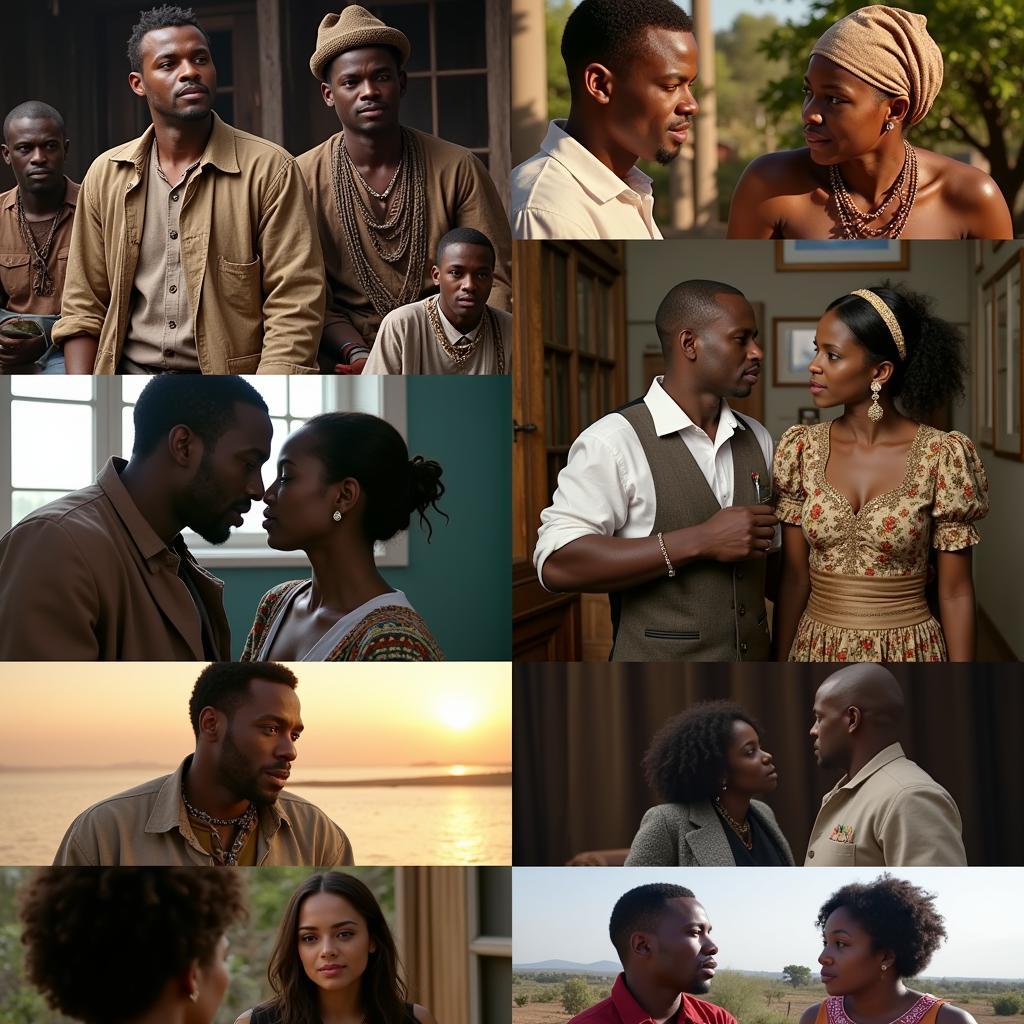Exploring the World of African Film Directors
African Film Directors are shaping the narrative of a continent, telling stories that resonate globally. From the bustling streets of Lagos to the serene landscapes of the Serengeti, these filmmakers capture the essence of Africa’s diverse cultures, histories, and experiences. This article delves into the world of African cinema, celebrating the visionaries behind the camera and highlighting their impact on the global film industry.
Pioneers and Visionaries of African Cinema
African cinema has a rich and complex history, dating back to the early 20th century. Initially hampered by colonialism and limited resources, African filmmakers persevered, creating powerful works that challenged stereotypes and amplified authentic African voices. Early pioneers like Ousmane Sembène, often hailed as the “father of African cinema,” laid the groundwork for future generations, paving the way for a vibrant and diverse cinematic landscape. His films, such as Black Girl and Xala, explored themes of colonialism, neocolonialism, and the struggles of post-independence Africa.
Check out some captivating african full movie options.
Other notable figures include Djibril Diop Mambéty, whose visually stunning and philosophically rich films like Touki Bouki pushed the boundaries of African storytelling. These early directors established a tradition of social commentary and artistic innovation that continues to inspire contemporary filmmakers. Their work not only documented the realities of life in Africa but also challenged Western cinematic conventions, offering a unique and powerful perspective on the world.
The Rise of New Voices and Global Recognition
The 21st century has witnessed a surge in global interest in African cinema, with new talents emerging and gaining international recognition. Filmmakers like Abderrahmane Sissako, Wanuri Kahiu, and Nadine Labaki are pushing creative boundaries and tackling contemporary issues with boldness and nuance. Sissako’s Timbuktu, a poignant portrayal of life under extremist rule, garnered critical acclaim and an Oscar nomination, highlighting the power of African cinema to engage with global audiences.
 New Wave of African Film Directors
New Wave of African Film Directors
Kahiu’s Rafiki, a groundbreaking LGBTQ+ love story from Kenya, challenged social norms and sparked important conversations about representation and acceptance. These filmmakers represent a new wave of African cinema, one that is both rooted in its cultural heritage and open to global influences.
Explore the exciting world of african comedy film.
Themes and Styles of African Film
African film directors explore a wide range of themes, reflecting the diversity and complexity of the continent. From historical epics to contemporary dramas, their films delve into issues of identity, colonialism, post-colonial struggles, family dynamics, love, loss, and the challenges of globalization. Stylistically, African cinema is as varied as its themes, encompassing everything from neorealist aesthetics to Afrofuturism.
 Diversity of Genres in African Film
Diversity of Genres in African Film
Some directors embrace traditional storytelling techniques, while others experiment with innovative narrative structures and visual styles. This diversity is what makes African cinema so compelling, offering a kaleidoscope of perspectives and experiences.
The Future of African Filmmaking: Challenges and Opportunities
While African cinema continues to gain momentum, challenges remain. Limited funding, distribution obstacles, and lack of infrastructure can hinder the growth of the industry. However, there are also significant opportunities. The rise of streaming platforms has opened up new avenues for distribution and exposure, allowing African filmmakers to reach wider audiences than ever before. Furthermore, increased international collaborations and co-productions are fostering creative exchange and providing access to resources and expertise.
If you’re interested in shorter format films, consider checking out an african hot short film.
“The future of African cinema is bright,” says Dr. Akinyi Ochieng, a renowned film scholar specializing in African cinema. “With increasing global interest and a growing generation of talented filmmakers, African stories will continue to captivate and inspire audiences worldwide.” Another expert, Professor Omar Hassan, adds, “The key is to invest in local talent and infrastructure, ensuring that African filmmakers have the resources they need to tell their stories on their own terms.”
Conclusion: A Continent of Stories Waiting to Be Told
African film directors are at the forefront of a cinematic revolution, sharing the stories of a continent rich in history, culture, and human experience. From the pioneers who paved the way to the new generation of filmmakers pushing creative boundaries, African cinema is a testament to the power of storytelling. By supporting and celebrating these visionaries, we can ensure that their voices continue to resonate globally, enriching the world with their unique perspectives and inspiring future generations of filmmakers. African film directors are shaping the future of cinema, and their stories are just waiting to be told.
Perhaps you might also be interested in an african horror movie 2019.
FAQ
- Who is considered the father of African cinema? Ousmane Sembène is widely regarded as the father of African cinema.
- What are some common themes explored in African films? Common themes include identity, colonialism, post-colonial struggles, family, and the impact of globalization.
- How has the rise of streaming platforms impacted African cinema? Streaming platforms have expanded distribution opportunities, allowing African films to reach broader audiences.
- What are some of the challenges facing African filmmakers? Challenges include limited funding, distribution obstacles, and lack of infrastructure.
- What is the future of African cinema? The future is bright, with increasing global interest and a rising generation of talented filmmakers.
- Where can I find more information about African film directors? Various online resources, film festivals, and academic institutions offer information about African cinema.
- How can I support African cinema? Supporting African film festivals, watching African films on streaming platforms, and contributing to organizations that support African filmmakers are great ways to help.
Need more help?
For any questions or support regarding African culture and filmmaking, please don’t hesitate to contact us:
Phone: +255768904061
Email: kaka.mag@gmail.com
Address: Mbarali DC Mawindi, Kangaga, Tanzania
We have a 24/7 customer support team ready to assist you.



